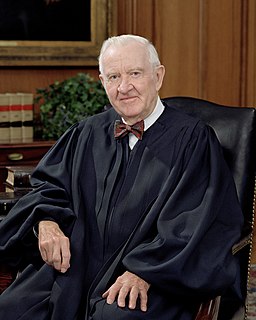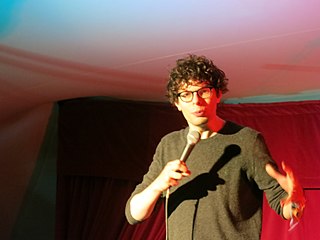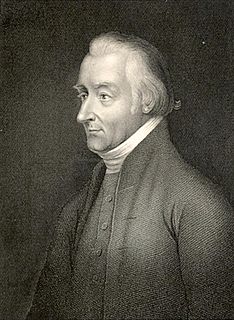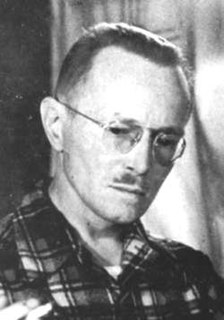Top 876 Sentences Quotes & Sayings
Explore popular Sentences quotes.
Last updated on April 14, 2025.
When I was writing the first few books, what I would do is write a bunch of sentences and then go back and expand and explode those sentences, pack as much into them as I could, so they'd kind of be like popcorn kernels popping... all this stuff in there to make the writing dense, and beautiful for its density.
If you directly try to write about an idea, it will never be what you imagined. But if you're imagining through the building of sentences, through the characters, and paying attention to avoid ease and comfort yet still thinking about making the sentences work, you will get a shot at some real interesting stuff.
Know what makes a sentence more than a random list, practice constructing sentences and explaining what you have done, and you will know how to make sentences forever and you will know too when what you are writing doesn't make the grade because it has degenerated into a mere pile of discrete items.
How many times have you opened a book, read the first few sentences and made a snap decision about whether to buy it? When it's your book that's coming under this casual-but-critical scrutiny, you want the reader to be instantly hooked. The way to accomplish this is to create compelling opening sentences.
In college, I used to underline sentences that struck me, that made me look up from the page. They were not necessarily the same sentences the professors pointed out, which would turn up for further explication on an exam. I noted them for their clarity, their rhythm, their beauty and their enchantment.
What I'm really involved in when I'm writing is something that no one ever mentions when they see any play. Writing is like trying to make gunpowder out of chemicals. You have these words and sentences and the strange meanings and associations that are attached to the words and sentences, and you're somehow cooking these things all up so that they suddenly explode and have a powerful effect. That's what absorbs me from day to day in writing a play.
I always tell my students to write the story all the way through, not to play with the language and fall in love with sentences that you then have to cut. I actually find that really difficult to do; there's something so demoralizing about looking at a pile of not very great sentences. As I ease into writing every morning, I tweak a sentence and then tweak a paragraph.
One of the qualities of writing that is not much stressed is its problem-solving aspect, having to do with the presentation of material: how to structure it, what sort of sentences (direct, elliptical, simple or compound, syntactically elaborate), what tone (in art, "tone" is everything), pacing. Paragraphing is a way of dramatization, as the look of a poem on a page is dramatic; where to break lines, where to end sentences.
When we were children, letters were like fun toys. We played with them through our building blocks. We colored them in books. We danced and sang along with TV puppets while learning C was for “cookie.” Soon, letters turned into words. Words turned into sentences. Sentences turned into thoughts. And along the way, we stopped playing with them and stopped marveling at A through Z.
Writing is the act of creation. Put words on page. Words to sentences, sentences to paragraphs, paragraphs to 7-book epic fantasy cycles with books so heavy you could choke a hippo. But don't give writing too much power, either. A wizard controls his magic; it doesn't control him. Push aside lofty notions and embrace the workmanlike aesthetic. Hammers above magic wands; nails above eye-of-newt. The magic will return when you're done. The magic is what you did, not what you're doing.
I write different kinds of sentences, depending on what the book is, and what the project is. I see my work evolving. I'm writing long sentences now, something I didn't use to do. I had some kind of breakthrough, five or six years ago, in Invisible, and in Sunset Park after that. I discovered a new way to write sentences. And I find it exhilarating.
The words are strung together, with their own special grammar-the laws of quantum theory-to form sentences, which are molecules. Soon we have books, entire libraries, made out of molecular "sentences." The universe is like a library in which the words are atoms. Just look at what has been written with these hundred words! Our own bodies are books in that library, specified by the organization of molecules-but the universe and literature are organizations of identical, interchangeable objects; they are information systems.
People don't talk like this, theytalklikethis. Syllables, words, sentences run together like a watercolour left in the rain. To understand what anyone is saying to us we must separate these noises into words and the words into sentences so that we might in our turn issue a stream of mixed sounds in response.
Syntax is the study of the principles and processes by which sentences are constructed in particular languages. Syntactic investigation of a given language has as its goal the construction of a grammar that can be viewed as a device of some sort for producing the sentences of the language under analysis.
We do have to learn poetry at school. Poetry is interesting to me, particularly Chinese poetry. It's like an ancient form of song. There's five sentences, seven sentences - they're very different from English poetry. Chinese poetry is much more rigorous. You can only use this many words, and they will form some kind of rhythm so people can actually sing it. To me, poetry is quite abstract but also quite beautiful.
I too love everything that flows: rivers, sewers, lava, semen, blood, bile, words, sentences. I love the amniotic fluid when it spills out of the bag. I love the kidney with it's painful gall-stones, it's gravel and what-not; I love the urine that pours out scalding and the clap that runs endlessly; I love the words of hysterics and the sentences that flow on like dysentery and mirror all the sick images of the soul.
I'll just talk and talk for an hour, an hour and half, until funny things come out of my mouth - often things that I don't think will be funny, often things that I just thought were sentences, turn out to be funny, because they're the sentences of an idiot. There's level of self-awareness that develops, and I write down things that were funny, usually when I'm on stage, and that becomes the show.
Mandatory minimum sentences give no discretion to judges about the amount of time that the person should receive once a guilty verdict is rendered. Harsh mandatory minimum sentences for drug offenses were passed by Congress in the 1980s as part of the war on drugs and the "get tough" movement, sentences that have helped to fuel our nation's prison boom and have also greatly aggravated racial disparities, particularly in the application of mandatory minimum sentences for crack cocaine.
[On George H.W. Bush:] A man who wishes to lead the Western world should be able to find the right words, string them together in coherent sentences, and steer them to an intelligible conclusion. His sentences have the stuttering start of an old car on a cold morning. They never run smoothly. The only speech part that he has mastered completely is the non sequitur.
Writing simply means no dependent clauses, no dangling things, no flashbacks, and keeping the subject near the predicate. We throw in as many fresh words we can get away with. Simple, short sentences don't always work. You have to do tricks with pacing, alternate long sentences with short, to keep it vital and alive.... Virtually every page is a cliffhanger--you've got to force them to turn it."~
Reading activates and exercises the mind. Reading forces the mind to discriminate. From the beginning, readers have to recognize letters printed on the page, make them into words, the words into sentences, and the sentences into concepts. Reading pushes us to use our imagination and makes us more creatively inclined.
To say that truth is not out there is simply to say that where there are no sentences there is no truth, that sentences are elements of human languages, and that languages are human creations.~ The suggestion that truth~ is out there is a legacy of an age in which the world was seen as the creation of a being who had a language his own.
I think the written word is probably the best medium of communication because you have time to reflect, you have time to choose your words, to get your sentences exactly right. Whereas when you're being interviewed, say, you have to talk on the fly, you have to improvise, you can change sentences around, and they're not exactly right.






















































